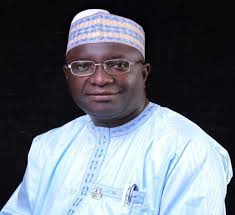The Council for Regulation of Engineering in Nigeria (COREN) has advocated public and private sector partnership (PPP) arrangement to ensure professional supervision and access to infrastructure projects in the country as a strategic option of ensuring high standards and timely completion of the projects.
The President of the Council, Engr. Ali Rabiu, made the appeal Wednesday during a virtual conference organised by the Nigerian Institute of Electrical and Electronics Engineers (NIEEE).
Engr. Rabiu, who was represented at the forum by Engr. Yakubu Garba, explained that since all aspects of human life and industrial activities, including transportation, telecommunication, power, aviation, hospitality, health and environment depend on engineering, there was the need to regulate the practice and prevent shoddy jobs for national socio-economic benefits.
The engineering expert, while discussing the topic ’Engineering Regulation in Emerging Technological Era’ pointed out that emerging technologies had the potential of improving the living standard of Nigerians in several ways, using Artificial Intelligence, Robotics and other innovations.
Engr. Rabiu said the collaboration of stakeholders toward effective regulation would assure quality infrastructure delivery nationwide with the attendant implications for improved living standards of the citizenry
He said: “With the recent signing of the amended COREN Act by President Muhammadu Buhari, COREN is currently organising a restructuring of Engineering Regulation Monitoring (ERM) nationwide.
“It is in this regard that COREN seeks the cooperation or partnership of all establishments and institutions in the public and private sector in ERM for effective monitoring of all engineering projects nationwide. To ensure value for money in engineering projects in order to accelerate national development”, the COREN chief added.
He said that COREN established the Engineering Regulation Monitoring (ERM) to monitor and enforce compliance with the amended COREN Act standards in line with global ethical principles of engineering.
According to him, collaboration for effective compliance to standards is crucial to unlocking the economic development potential and enabling Nigeria to keep pace with global technological innovations.
“It is my hope that Engineering Regulation Monitoring (ERM) nationwide would be given maximum cooperation and unrestricted access to engineering projects sites while on a mission to conduct their assignments”, Engr Rabiu projected.
Earlier in his contribution, National Chairman, Nigerian Institute of Electrical and Electronics Engineers (NIEEE), Engr. Kings Adeyemi, advocated the involvement of stakeholders in the standards development process to guide emerging technologies and improved public sector funding since advancements in electrical and electronic engineering remains the “bedrock of all emerging technologies“
He elaborated: “Our government should create a conducive business environment for innovations to thrive particularly among our young engineers.
“There is a need to invest in digital technologies and also to patronise locally developed innovations. The good news is that the future looks bright as new technologies open up new opportunities,’’ he said.
The NIEEE chairman pointed out that digital transformation would create opportunities for innovations and create value across organizations.






